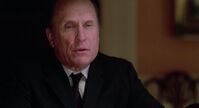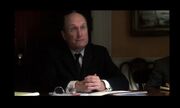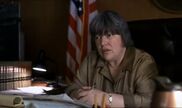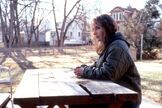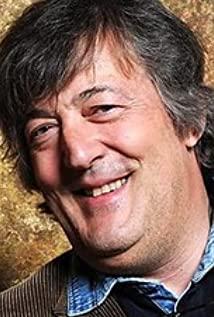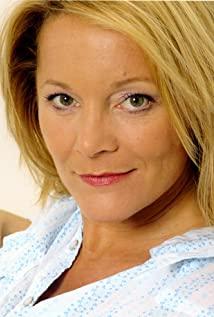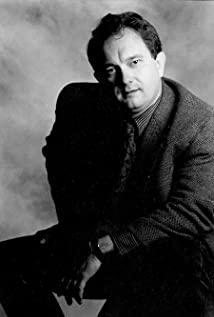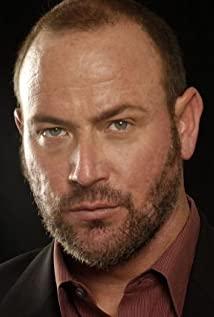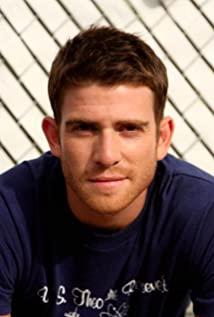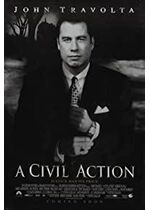-
Jerome Facher: [sitting across from each other in the hallway outside the courtroom as the jury deliberates] What's your take?
Jan Schlichtmann: They'll see the truth.
Jerome Facher: The truth? I thought we were talking about a court of law. Come on, you've been around long enough to know that a courtroom isn't a place to look for the truth.
-
Al Eustis: [after Jan showed up late to the Harvard Club] You've never been here before? What kind of "Harvard man" are you?
Jan Schlichtmann: [smiles] The Cornell kind.
-
[first lines]
Jan Schlichtmann: [narrating] It's like this. A dead plaintiff is rarely worth as much as a living, severely-maimed plaintiff. However, if it's a long slow agonizing death, as opposed to a quick drowning or car wreck, the value can rise considerably. A dead adult in his 20s is generally worth less than one who is middle aged. A dead woman less than a dead man. A single adult less than one who's married. Black less than white. Poor less than rich. The perfect victim is a white male professional, 40 years old, at the height of his earning power, struck down in his prime. And the most imperfect? Well, in the calculus of personal injury law, a dead child is worth the least of all.
-
Jan Schlichtmann: [narrating] The odds of a plaintiff's lawyer winning in civil court are two to one against. Think about that for a second. Your odds of surviving a game of Russian roulette are better than winning a case at trial. 12 times better. So why does anyone do it? They don't. They settle. Out of the 780,000, only 12,000 or 11/2 percent ever reach a verdict. The whole idea of lawsuits is to settle, to compel the other side to settle. And you do that by spending more money than you should, which forces them to spend more money than they should, and whoever comes to their senses first loses. Trials are a corruption of the entire process and only fools who have something to prove end up ensnared in them. Now when I say prove, I don't mean about the case, I mean about themselves.
-
James Gordon: [to secretary] Every credit-card application we send in, we get two more in the mail. Here's one from some bank I've never heard of, in North Dakota. Fill it out. Fill them all out. It's the last great pyramid scheme in America.
-
James Gordon: [Regarding the case and the following settlement] Mrs. Anderson, you're looking at four guys who are broke. We lost everything trying this case.
Anne Anderson: How can you even begin to compare what you've lost, to what we've lost.
-
Jerome Facher: [to law students] Now the single greatest liability a lawyer can have is pride. Pride... Pride has lost more cases than lousy evidence, idiot witnesses and a hanging judge all put together. There is absolutely no place in a courtroom for pride.
-
James Gordon: [Seeing Uncle Pete for another loan after Schlichtmann's firm is in serious financial trouble] You'll never guess what I did last night. You'll like this. I pledged $200 to a tele-evangelist. I'm not kidding. He said, "Give and ye shall receive." I called him right up. I know, I know what you're thinking. You're thinking, "Gordon's losing it. He's falling apart. He's probably buying lottery tickets." I bought a few, I'll admit it. I know. But, seriously, the jackpot's $45 million. That's just this week. You should see the lines out there.
Uncle Pete: [Nods to a bulge in Gordon's pocket] Is that a gun?
James Gordon: What? This? No. No, this is for you.
[Empties bag that was in his pocket full of coins]
James Gordon: My Krugerrands. I've had them forever. I want you to have them. And... this is the deed to my house. And here is Conway's and Crowley's and Jan's. See? I come bearing gifts. We really need the money.
-
Jan Schlichtmann: I can appreciate the theatrical value of several dead kids, I mean, I like that. Obviously, that's good. That is all this case has going for it. That's not enough. Get rid of it.
-
Jan Schlichtmann: [narrating] The lawyer who shares his client's pain, in my opinion, does his client such a grave disservice, he should have his license to practice law taken away. It clouds his judgment. And that's a beneficial to his client as a doctor who recoils at the sight of blood.
-
Jan Schlichtmann: Nobody calls anymore? Not even the creditors? Are the phones still working?
-
Jan Schlichtmann: Oh, I see, when you say it's over, you mean it's over. It's time for me to go my separate way...
Kevin Conway: You always went your separate way, Jan.
-
Jan Schlichtmann: [disappointed, after Beatrice has been found not guilty in the first stage of the trial, to Anne Anderson, quickly walking past Richard Aufiero, sitting in the back of the courtroom, as Jan leaves the courtroom] Don't worry about it, everything's under control.
-
Jan Schlichtmann: [siting in Skinner's chambers with William, Jerome present] This is the defendant's plan!
Judge Walter J. Skinner: No, it's my plan!
Jan Schlichtmann: It's Facher's plan, right from the beginning!
Judge Walter J. Skinner: It's my plan.
Jan Schlichtmann: [pointing at Jerome] He told me, he threatned me.
Judge Walter J. Skinner: IT'S MY PLAN!
-
Jan Schlichtmann: Do me a favour, Gordon, will you? Shut up.
James Gordon: [lying on the floor, from the majority of their furniture taken away for failure to pay their bills on time and in full] What?
Jan Schlichtmann: I'm so tired of hearing you moan about money all the time. This isn't about money anymore.
James Gordon: No?
Jan Schlichtmann: No.
James Gordon: What's it about? What's it about, Jan?
Bill Crowley: Look, let's all...
James Gordon: [stands up and walks over to Jan] No, I want to know. I want to know why I gave up my house for. My credit! My life! Would you take 10 million dollars right now?
Jan Schlichtmann: Yes.
James Gordon: But you won't take eight?
Jan Schlichtmann: No.
James Gordon: No. So at 10 million dollars this is some sort of uh... a, a mythic struggle but at eight it's just another lawsuit.
Jan Schlichtmann: If they're willing to pay eight, Gordon, then it's not enough, is it?
James Gordon: [sarcastically] Oh, that makes sense!
Jan Schlichtmann: It makes perfect sense.
James Gordon: [pacing back and forth] So, the only thing you accept is what they're not willing to give us. Listen to yourself! I for one am sick of listening to you. I've lost enough because of you.
Jan Schlichtmann: [shouting] You wouldn't have anything to lose it if it wasn't for me. Everything you have I got for you!
James Gordon: [emptying his pockets and throwing the items on Jan's table] I don't have anything, Jan! What do I have? I've got a couple of bucks and some, some bus transfers. I've got a saving account from when I was 12 years-old. Here! There's 37 dollars in here. With interest, after 25 years there's probably 47 dollars, take it! Add it to the war chest. Use it to fight injustice. Stand up for principles with that. Go down in flames with it for all I care. Only next time, "next time", that's a laugh - ask us if we want to go down with you!
-
[last lines]
Bankruptcy Judge: Mr. Schlichtmann? Mr. Schlichtmann?
Jan Schlichtmann: I'm sorry. Yes.
Bankruptcy Judge: The purpose of these questions is not to embarass or humiliate you but rather to verify the information you've declared as your assets.
Jan Schlichtmann: I understand.
Bankruptcy Judge: Because what you're asking your creditors to believe with this petition is... well, it's hard to believe.
Jan Schlichtmann: I know.
Bankruptcy Judge: That after 17 years of practising law all you have to show for it is 14 dollars in a checking account a portable radio?
Jan Schlichtmann: That's correct.
Bankruptcy Judge: Where did it all go?
Jan Schlichtmann: The money?
Bankruptcy Judge: The money, the property, the personal belongings, the things one acquires in one's life, Mr. Schlichtmann. The things by which one measures one's life. What happened?
-
Jan Schlichtmann: [stating the constract settlement agreement terms to Jerome, William, and Neil] 25 million dollars cash, and another 25 million dollars to establish a research foundation, to study the links between hazard wastes and illness, and 1.5 million dollars per family, annually for thirty years.
-
Jan Schlichtmann: [to her and the family members of the victims] Ms. Anderson, our firm is very small, three attorneys that's it, which means we can only take on so many cases at once and we have to be very careful on the ones we do take because we can't afford to lose, our clients pay nothing, we pay everything, and the only we get paid back if we win or settle, you want an apology, and there's nothing more than I'd like to do, to get you that apology, but from who? Who's going to apologize to you and pay me? There has to be a defendant and one with very deep pockets, this is not an inexpensive case to try.
-
James Gordon: Every dollar is a dollar we don't have, we're floating on credit, without a net
Jan Schlichtmann: [while organizing his desk] Mortgaged my house, I don't care
James Gordon: [as Jan looks up] I have, and Kevin's, and Bill's and mine, and I've cashed in our retirement plan, and our life insurance policies, it's gone
-
Jan Schlichtmann: [looking through the list of expenses they've spent thus far] This figure here, one hundred dollars an hour for Dr. Conan that seems more than fair considering his preeminence
James Gordon: That's for his nights in the hotel, that's his discount sleeping rate
Jan Schlichtmann: [looks up at Gordon] oh
James Gordon: Your doctors have cost us more than nine hundred thousand so far
Jan Schlichtmann: They're worth it
James Gordon: Your geologists have cost us more than five hundred thousand so far
Jan Schlichtmann: Well, they're worth it
James Gordon: That's not the point, the point is everybody in the firm is only working on this case which means we have no money coming in, just going out
-
Jan Schlichtmann: So what are you saying? You want to get out now and cut our losses, you want to get out now and throw away...? What was it?
James Gordon: 1.4 million dollars
Jan Schlichtmann: Well, I don't know what to tell you because there's things I need to prove and I can't do that not spending money
James Gordon: We have to go see uncle Pete
-
Jan Schlichtmann: [Narrating] The appeals process is even more byzantine than the trial it's appealing, takes longer, costs more, it's outcome even less promising, only five cases in fifty will win an appeal, the odds are as easy to calculate as they are discouraging, they're ten to one against, just about any bet at any table at any casino anywhere in the world is better than that, I have the evidence but no longer the resources or the gambling spirit to appeal the decision in the Beatrice case, I have no money, no partners as far as I can tell, no clients anymore, the Woburn case has become what it was when it first came to me, an orphan, I'm forwarding it onto you and all its unwieldiness, even though I know you might not care to adopt any more than I did at first, if you decide to take it on, I hope you will be able to succeed where I have failed, if you calculate success and failure as I always have, in dollars and cents divided neatly into human suffering the arithmetic says I failed completely, what it doesn't say, if I could somehow go back, knowing what I know now, knowing where I'd end up if I got involved with these people, knowing all the numbers, all the odds, all the numbers, I'd do it again.
-
Al Eustis: [siting on his couch in his office across from Jan] Let's be honest I can afford to pay you almost anything you ask for, it's not the money, it's what a settlement that says, it says we're guilty, and that says to every two bit personal injury lawyer in Boston, "hey, let's all run up to Woburn, and sign up every jerk with a head cold", creates a shark effect, and that I can't afford, give me a number.
Jan Schlichtmann: I'm not going to negotiate with myself Al, I'm going to throw out numbers that you'll say no to them, you'll have to come up with them.
Al Eustis: Eight million.
Jan Schlichtmann: I can't go to the families with that, I can't go to them empty handed.
Al Eustis: Since when is eight million dollars empty handed? Eight million dollars is a lot of money.
Jan Schlichtmann: I owe them more than that.
Al Eustis: What do you owe them? You owe them your career? You owe them that much? Don't do it, don't go for broke on this one.
-
James Gordon: [to Kevin] No, let me stop you right there, I don't need to hear it, from a financial stand point, I can tell you right now this not a sound investment, "probable" is just a euphemism for "unproven", to prove something like this, you need new medical research, is that the business we're in? The medical research business? and you have to ask yourself why is this case an orphan? Why has it been from kicked from firm to firm until it ended up on your desk?
-
Judge Walter J. Skinner: [Reading the verdict for the first stage of the trial] with respect to W.R. Grace the jury has Answered "yes" to question one regarding Trichloroethylene contamination requiring we continue the proceedings against Grace to a second stage of this trial in regard to Beatrice the jury has answered "no" to question one and all its points pertaining to contamination which renders questions two and three inapplicable thus, ending the case against Beatrice
-
Jan Schlichtmann: [Plaintiff opening statement] ladies and gentlemen of the jury there's a small town north of Boston called Woburn and Woburn is like many small towns it has homes, churches schools and industry, but Woburn has something else: more than its share of sickness and death
-
Jan Schlichtmann: [On the radio talk show] Personal injury law has a bad reputation they call us "ambulance chasers", "bottom feeders", "vultures that prey on the misfortunes of others", if that's true why do I lay awake at nights worrying about my clients why does their pain become my pain? I wish I could find some way not to empathize, it'd be a lot easier
Radio Talk Show Host: [On the radio talk show] Speaking with Jan Schlichtmann personal injury attorney and according to Boston Magazine one of Boston's Ten Most Eligible Bachelors, let's go back to the phones: Woburn you're on the air
Anne Anderson: [On the radio talk show] Hello, Mr. Schlichtmann it's Ann Anderson how come you never called me? My son died of leukemia two years ago and your firm is handling the case, the reason why I'm calling you there is because my phone calls haven't been returned in a few weeks, I have an idea, why don't you come up to Woburn one of these days and meet these people whose "pain is your pain"?
-
Jan Schlichtmann: Let me picture how they happened, she called and she cried you felt sorry for her so you cried, now she's mad at me now that makes sense?
Kevin Conway: This is a good case, an orphan but a good one, twelve deaths over fifteen years from leukemia eight of them children its statically unusual it's a very small town they think it has something to do with the city's drinking water which they say has always tasted funny, there's a report from state inspectors that water from two city wells is contaminated or was before they shut them down with something called Trichloroethylene
-
Anne Anderson: [to Jan during a meeting with the other victim's families] When I stand on my front porch I can see all the houses where children have died, none of us are interested in money that's not why we're doing this, what we want is to know what happened and we want an apology from whoever did this, I want somebody to come to my house and say "we're responsible we did this, we didn't mean it, but we did it and we're sorry"
-
Jan Schlichtmann: [Reviewing company profiles and profit statements of the companies they're going to sue] Do you know who Beatrice Foods is? Their products include: Peter Pan Peanut Butter, Tropicana Orange Juice, Rosarita Mexican Food, Samsonite Luggage, the list goes on and on. The other company is W. R. Grace, chemical manufacturer with plants in two dozen states, South America, Europe, and Japan.
-
Jan Schlichtmann: [Narrating] Lawsuits are war, it's as simple as that ad they begin the same way the declaration: the compliant, when you're a small firm and their a big one steep in history and wealth as they always are, with their Persian carpets on the floor and their Harvard diplomas hanging on the wall, it's easy to be intimidated, don't be, that's what they want, that's what they expect, like all bullies that's how they win, I don't run away from bullies.
-
Jerome Facher: [after clerk interrupts his lunch to deliver a brief] You know, if I were you, I'd make it a point of taking that hour or so away from all the noise and insanity of this place.
Law Clerk: I should do that.
Jerome Facher: I'd find a place for myself where I could go that was relatively quiet and peaceful. Have a sandwich, read a magazine, maybe listen to a game out at Fenway if one was on. And I'd make sure everyone knew I didn't want to be disturbed during that hour of sole solitude. Because that would be my time - my own private time. Which no one if they had any sense of any self-preservation at all... would dare interrupt. If I were you.
Law Clerk: [terrified] I'm sorry.
-
Judge Walter J. Skinner: [beginning the preliminary proceedings] Now the matter before us seems to be a simple one.
Jan Schlichtmann: Your honor I'm sorry but I don't think it's a simple.
Judge Walter J. Skinner: May I hear it?
Jan Schlichtmann: No, because the true intention is to place me under a cloud of impropriety in your court room right from the beginning, what they're saying with this motion is that they know the law and I don't that their real lawyers and I'm not they're just trying to humiliate me.
Judge Walter J. Skinner: You are a personal injury lawyer are you not? I think you'll survive that.
Jan Schlichtmann: You see? Its starting already.
Judge Walter J. Skinner: No you've started already.
Jan Schlichtmann: No I'm on the defensive and their the defendants.
Judge Walter J. Skinner: Do you think I can at least hear this motion before you tell me what it's really about?
Jan Schlichtmann: Of course.
-
Jan Schlichtmann: [during his deposition] Back in the 1965 and there and thereafter did you clean metal parts with any kind of solvent?
Al Love: Yes
Jan Schlichtmann: What kind?
Al Love: That I couldn't tell you
Jan Schlichtmann: Did you ever notice the name Trichloroethylene or TCE?
Al Love: No I don't know
Jan Schlichtmann: But you'd put it in barrels when you were done with it, that'd be the process right?
Al Love: Yes
Jan Schlichtmann: Did you ever see what happened with these barrels when they were full?
Al Love: Yes, they get dumped out back in the ground
Jan Schlichtmann: What do you think of the water in Woburn ten to fifteen years ago?
Al Love: It had an odor
Jan Schlichtmann: Were you concerned when you found out the wells were contaminated?
Al Love: Yeah I was concerned
-
William Cheeseman: That water hasn't made anybody sick
Al Love: [talking privately in an alleyway, after giving his deposition] How do you know?
William Cheeseman: I just do
Al Love: There are a lot of people in my neighborhood that are dead or dying from something
William Cheeseman: If I took a hundred pennies and threw them up in the air about half of them would land on heads and half would land on tails, if I looked closely I'd see pennies that landed on heads grouped in a cluster what does that mean? Does that mean anything? No one knows what causes Leukemia no one knows what caused that cluster
Al Love: I know what happened, and I know who did it
William Cheeseman: This is very important I want you to tell me whose those people are
Al Love: I'm not a rat
William Cheeseman: It's important because if there's something wrong out there we need to disclose it to the proper authorities and have it cleaned up you think about that and call me
Al Love: [dismissively, before walking away] Yeah
-
Jerome Facher: You were aware that when you moved the Woburn the water didn't taste good
Richard Aufiero: [during his deposition] A lot of places the water doesn't taste good
Jerome Facher: Do you ever use bottled water?
Richard Aufiero: We use bottled water off and on, we cook with regular tap water if were to make something like orange juice we'd use half bottled water and half tap water but to drink straight water we'd drink bottled water
Jerome Facher: Has any doctor ever tell you, you had any dysfunction with your immune system?
Richard Aufiero: No, when my son died they told us that's why he died his immune system tore down to nothing
Jerome Facher: Why'd you have him autopsied?
Richard Aufiero: Because he was doing good he only lived three months with Leukemia he looked fine
Jerome Facher: Did you talk to the doctor after?
Richard Aufiero: More like a "violent" talk
Jerome Facher: "Violent" meaning you were angry?
Richard Aufiero: Yelling at him
Jerome Facher: Your son seemed to be doing alright he was admission and doctors were optimistic about his future suddenly he became ill and died
Richard Aufiero: They said that was expected and anybody with a disease like leukemia could die at any minute, you can tell if your child isn't feeling good you try to explain it over the phone and they'll ask "does he have a temperature?" I said "no, they said doesn't worry he'll be fine bring him into the clinic Monday morning, he died Monday morning
-
John Riley: [during his deposition in Jan's office] I started working for my father sweeping the beam house floors for my father which he swept for his father when he was seven years old which my boys swept when they were seven years old...
Jan Schlichtmann: [interrupts him] Please answer the question I asked and not one I didn't. Silicon and trichloroethylene mixed together are used to waterproof leather, are they not?
John Riley: [pours a glass of water on the conference table]
Jan Schlichtmann: Let the record show the witness has emptied a glass of water on the table. Mr. Riley, what do you intend to say by pouring a glass of water on my conference table?
John Riley: This is how silicon is applied to leather to waterproof it. I'm answering your question.
Jan Schlichtmann: It's poured on. Some of it must spill off on to the floor, like the water spilling off the conference table and on to my rug. That's the part I'm interested in. How was the silicon and trichlorethylene cleaned up?
John Riley: We never used TCE.
Jan Schlichtmann: "TCE"? I didn't say "TCE". I said "trichlorethylene". You said "TCE", as it commonly known to those who use it. Mr. Riley, do you mind if we check your purchase orders, receipts, ect?
John Riley: Be my guest. We have those records going back three years. Everything else, we dumped.
-
Al Love: [to Anne Anderson on a picnic table in her backyard] I thought about coming to see you for a long time. I guess I was afraid, I didn't think you wanted to talk to me because where I work. I'm concerned about what's been happening around here and I'm angry at the company for handling itself I'm very sorry about your son
-
Jerome Facher: How's business by the way?
Jan Schlichtmann: Business is good
Jerome Facher: That's good I'm afraid with all the scientists and other expenses a small boutique firm like yours might be in trouble
Jan Schlichtmann: I appreciate your concern we got more than enough to go the distance.
Jerome Facher: Are you sure? I'm afraid one day you miscalculated the arithmetic and there you were digging quarters out of the seats of your shiny black sports car
Jan Schlichtmann: You really don't have to worry
Jerome Facher: That's a relief, you don't want me in this case I'm only going to hurt you, so get rid of me, tell me what you got in so far and I'll have a check cut and we'll get on with our lives
Jan Schlichtmann: My expenses? You're offering to cover my expenses? Your expenses and your pride you think you're going to put the families on the stand, the mothers and fathers are going to tell their stories and the jury members will pull out their handkerchiefs and dab their eyes, do you really think I'd let that happen?
Jan Schlichtmann: I don't see how you could prevent it
Jerome Facher: [before biting into his jelly donut] Of course you don't
-
Jan Schlichtmann: We start with the scientific evidence then the medical experts and their evidence and then the parent's testimonies, your presence is very important this is where the jury gets to know you if your there some days and not other days they say "why wasn't she there? Does she really care?"
Anne Anderson: I'll be there every day in the back left hand corner
Jan Schlichtmann: Well, wherever you're most comfortable
Anne Anderson: [referring to her deceased son] That was our plan if we ever got separated at the department store or supermarket we'd meet in the back left hand corner when he was dying he said, "I'll meet you in the back left hand corner of heaven"
-
Jerome Facher: [Defendant opening statement] The idea of criminal court is crime and punishment. The idea of civil court and of personal injury law by nature, although no one likes to say it out loud, least of all the personal injury lawyer himself is money. Money for suffering and money for death as if that could somehow relieve suffering, as if somehow it can bring dead children back to life.
-
Jerome Facher: [lecturing to his class] A plaintiff's case depends on momentum the few objections he gets the better the case will go so whenever you can you should object, irrelevance: objection hearsay: objection best evidence: objection authenticity: objection if you should fall asleep at the counsel chair the first thing you say when you wake up should be "objection"
-
William Cheeseman: [Defense opening statement] Its true, small amounts of solvents were left on the ground why? To evaporate, did they? Yes, these chemicals never reached wells almost half a mile away and we will show that, and they never made anybody sick and we will show that too.
-
Uncle Pete: [looking at their firm's assets] Where are we on the Lonagates settlement?
James Gordon: Spent it.
Uncle Pete: Spent it? How much of it?
James Gordon: All of it.
Uncle Pete: What about the Connelly settlement?
James Gordon: Spent it.
Uncle Pete: [confused] On?
James Gordon: [referring to their present case] Woburn, we spent everything on Woburn.
Uncle Pete: So what do you think you'll need to tie you over here? About two, three hundred?
James Gordon: Six hundred thousand.
Uncle Pete: [surprised] Six hundred thousand?
James Gordon: Yes.
Jan Schlichtmann: When was the last time you lost betting on me? Never:, I'm probably the best investment your bank ever made.
-
Jan Schlichtmann: Experts have testified in this court that your land, your fifteen acres is the most grotesquely polluted land in all of New England and you have no idea how it got that way?
John Riley: No.
Jan Schlichtmann: Does it upset you to learn that?
John Riley: Very much so.
Jan Schlichtmann: Why?
John Riley: My factory is the oldest surviving business in Woburn, when the other tanners moved out, I stayed even though that was a very big financial burden. I stay because Woburn is my home that land has been in my family for three generations. That land to me is "hallow ground," so if you asked me if someone came onto that and desecrated it, a land that a part of a town that I love my answer to your question is "yes".
-
Jerome Facher: [meeting inside the judge's chambers] Last night I was at the ball game, it was the seventh inning stretch, I was standing there I don't know why but it occurred to me unless you've proven any chemicals actually reached the wells there's no case: therefore there's no need for the families who've suffered so much to relive the suffering by putting them on the stand.
Judge Walter J. Skinner: That's interesting I think I'd have to agree with that, if the jury decides favorably on the geological evidence then you can bring your families.
Jan Schlichtmann: [protesting against Facher's suggestion] The jury came into this courtroom expecting a human drama but instead for three months we've been giving them lessons in geology but we had to do that and it's over, finally: they want to testify, they need to testify.
-
Judge Walter J. Skinner: [in his chambers, to Jan, Jerry and Bill] My plan is to present the jury with some simple questions: 1. have the plaintiffs established by a preponderance of evidence chemicals containing TCE were disposed on the W.R. Grace and Beatrice's own lands after October 1st, 1964 and August 27, 1968 respectively and did those chemicals contribute to the well water contamination? 2. What according to the preponderance of evidence was the earliest time, the month and year at which these chemicals substantially contributed to the contamination of the wells? 3. What according to the preponderance of evidence was the earliest time, the month and year at which substantial contribution referred to in question two was caused if it was by the negligent conduct of the defendants?
-
Jerome Facher: In forty five years of practicing law, I've never waited in a corridor for a verdict.
Jan Schlichtmann: I always do.
Jerome Facher: I can tell you're good at it: you seem to be at peace doing it, do you think its good staying outside this long? Or is it bad?
Jan Schlichtmann: For who?
Jerome Facher: For me, you can never tell, jury duty is more fun than working at the post office.
Jan Schlichtmann: It's bad for both of us, the jury will see the truth.
Jerome Facher: In a courtroom you won't find anything that even resembles the truth.
Jan Schlichtmann: Eight kids are dead.
Jerome Facher: The minute you filed the compliant the minute it entered the justice system is when this case stopped being about dead children. I know you're a high stakes gambler, its apart of your profession, why don't we test your born again righteousness of our courts with a high stakes gamble?
Jan Schlichtmann: [Jerry takes out a twenty dollar bill] If that's a settlement offer, that's not enough.
Jerome Facher: What if I could add six zeroes to that? That'd be twenty million dollars, wouldn't that put things in prospective in terms of truth, justice and dead children?
Jan Schlichtmann: If you want to talk seriously about a settlement offer let's get the decision makers and talk seriously.
Jerome Facher: The decision makers are already here, it's just you and me we're like kings sitting in a castle deciding important things like the fate of others. Counting money in our counting room. I'll leave the twenty dollars here, go back to my throne room and wait for your decision but if you're looking for the truth you'll find it where it always is: the bottom of the deepest ocean.
-
James Gordon: [to the victim's families with Jan, Kevin, Bill] Our contingency fee is, as you know, as you agreed to, as it is customary is forty percent but Jan suggested and we all agreed to reduce that to twenty eight percent or 2.2 million dollars. Our expenses: what we actually paid trying this case is 3.5 million dollars, subtracting that and the twenty eight percent in fees from the eight million we got from Grace and dividing it equally among you:comes to three hundred and seventy five thousand dollars per family
-
Anne Anderson: When you first came out here Mr.Schlichtmann, when we first spoke I told you I wasn't interested in money: what I wanted was an apology for what they did to my son and you said they apologize with their check books, would you call this an apology?
Jan Schlichtmann: no, the only "meaningful, " apology is the one you're going to get is from me: I'm sorry.
-
Jan Schlichtmann: [to Kevin referring to Bill and James after Jan spent all their firm's money trying the case and lost] they want out right? Its time they went their separate way. Do you know what I think of that? "Fine, let them". I can imagine worst things.
Kevin Conway: like what?
Jan Schlichtmann: so what if we have to start over? We did it once we can do it again, the two of us?
-
Jan Schlichtmann: [during a settlement agreement meeting, referring to the companies they're suing represented by their lawyers] Bill, how much did Grace make last year?
William Cheeseman: I have no idea but I have a feeling you do
Jan Schlichtmann: One hundred ninety eight million dollars
[to Jerry]
Jan Schlichtmann: And, Beatrice?
Jerome Facher: I don't know
Jan Schlichtmann: Four hundred thirty six million dollars together that's six hundred thirty four million dollars. One year that's net. So that's what they made, this is how much they'd be made to pay: to compensate the families, to provide for their economic security in the future
William Cheeseman: Don't forget you, compensating you
Jan Schlichtmann: And to make sure this kind of thing doesn't happen again
-
James Gordon: [after the lawyers for the defendants leave the room for unsuccessfully reaching a settlement agreement] What's the story?
Jan Schlichtmann: I guess they don't want to end this thing
James Gordon: They don't want to end this? You said this would never go to trial, you just made certain that it will, without consulting us I might add
Jan Schlichtmann: They patronize us, they think we're black mailers, they think they can buy us
James Gordon: We can't afford a long drawn out trial
Jan Schlichtmann: well, you're going to have to find a way to getting some money then.
-
Last Title Card: Judge Skinner found out that John Riley deliberately concealed evidence at the trial. His tannery was torn down in 1990.
-
Last Title Card: W.R Grace was indicted by the Grand Jury for making false statements to the EPA regarding its use of the chemicals TCE, Acetone and Toluene. The company pleaded no contest to the Acetone charge. It's Woburn plant was closed in 1990.
-
Last Title Card: Faced with the prospect of returning to court, the two companies agreed to pay their share of the 69.4 million dollars in cleanup costs, the largest, most expensive project of its kind in New England history.
-
Last Title Card: It took several years to settle his debts, but only one year to fall off Boston's Ten Most Eligible Bachelors list.
-
Last Title Card: He now practices environmental law, and is currently representing 60 families in Toms River, New Jersey, in another contaminated water case.
-
Jerome Facher: [to his class] And one last thing: if you don't know what the answer is going to be, never ask a witness "why". Ever.
-
Jan Schlichtmann: Oh, I see. When you say it's over, it's *over*. It's time I went my separate way.
Kevin Conway: You always went your separate way, Jan.
A Civil Action Quotes
Extended Reading


